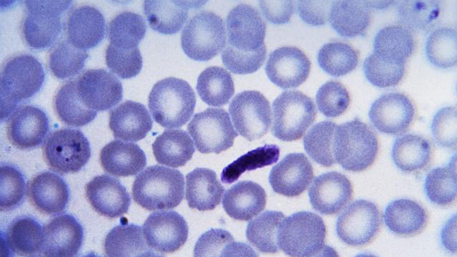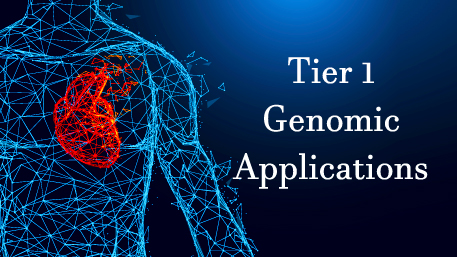Genomics and Precision Health Blog – Archive Posts
The Current Landscape of CDC Publications in Human Genomics and Public Health

In October 2021, the CDC Office of Genomics and Precision Public Health (OGPPH) launched a new, five-year initiative to strengthen public health capacity in genomics and precision medicine. The emergence of evidence-based genomic applications and lack of equity in their implementation in clinical and public health practice provided an important impetus for this initiative. To Read More >
Posted on byGenomics and Precision Medicine 2021: Progress in Implementation, A Focus on Health Equity, and a New Public Health Initiative

In this post, we reflect on another eventful year in genomics and precision medicine and review the emerging opportunities for the field to make an impact on population health. We use the annual review published by the National Human Genome Research Institute (NHGRI) along with our own website updates, and blogs as a springboard for Read More >
Posted on byThe Use of Machine Learning in Health Care: No Shortcuts on the Long Road to Evidence-based Precision Health

Two recent systematic reviews reveal the high risk of bias present in randomized controlled trials (RCTs) and observational studies based on machine learning and artificial intelligence. Digitization of health data holds profound potential to change the way we collect information and interact with the health care system. In current times, an increasing volume of health-related Read More >
Posted on byApplications of Polygenic Risk Scores to Population Health: Where Are We?

An international multidisciplinary group of experts in genetics, law, ethics, behavioral sciences, and other fields reviews the state of science on polygenic scores and highlights risks and gaps before widespread use in practice. Polygenic risk scores (PRS) combine the small effects of many genes across the human genome to estimate the risk of a disease Read More >
Posted on byContributions of Genomics to the Fight Against Malaria

Malaria was endemic in the United States (US) when the Communicable Disease Center was purposefully opened in Atlanta, GA, rather than Washington DC, in 1946. The Communicable Disease Center, now the US Centers for Disease Control and Prevention (CDC), was started closest to where malaria elimination efforts were needed: the Southern US, including Georgia, suffered Read More >
Posted on byNew CDC Partnerships to Advance the Development and Validation of Next Generation Sequencing Tests: A Publicly Available List of Expert Curated Variants

Over the last decade, genetic testing has evolved from examining a few well-defined variants in one or a few genes to the capability to examine much of the human genome using next generation sequencing (NGS). These analyses are particularly useful for disorders with locus and allelic heterogeneity, and are now the norm in several clinical Read More >
Posted on byThe Science of Gene-Environment Interaction at the Centers for Disease Control and Prevention and Agency for Toxic Substances and Disease Registry

Now, more than ever, we are aware that our environment has implications for our health. We are also learning more about the effects of inherited traits, such as blood type, on disease susceptibility and progression. Understanding the interactions between our environment and our genes and how they affect health outcomes offers a multitude of potential Read More >
Posted on byAn Expanding List of Tier 1 Genomic Applications: Evidence-based Guidelines for Hypertrophic Cardiomyopathy and Public Health

The CDC Tier-Classified Guideline Database includes three Tier 1 guidelines on hypertrophic cardiomyopathy (HCM). A 2014 guideline from the European Society of Cardiology, a 2017 guideline from the American Heart Association, American College of Cardiology, and Heart Rhythm Society, and a 2020 guideline from the American Heart Association and American College of Cardiology all recommend Read More >
Posted on by 2 CommentsLarge-Scale Population Studies as a Path to Personalized Medicine: Easier Said than Done!

For more than two decades, advances in genomics have promised a new era of personalized or precision medicine (i.e., the right intervention to the right person at the right time). Scientific evaluation of new gene discoveries has been aided by the launch of large-scale epidemiologic and clinical collaborative global studies. In a recent commentary, McCarthy Read More >
Posted on byThe Contributions of Host Genomics Research to the COVID-19 Response: It’s Not Just About Genes!

A recent large collaborative host genomics study provides valuable insight into the interplay of biology and epidemiology on COVID-19. The study was based on a meta-analysis of nearly 50,000 patients from 46 studies spanning 19 countries. The study found 13 loci (specific locations on various chromosomes) associated with COVID-19 susceptibility or severity through genome wide Read More >
Posted on by

